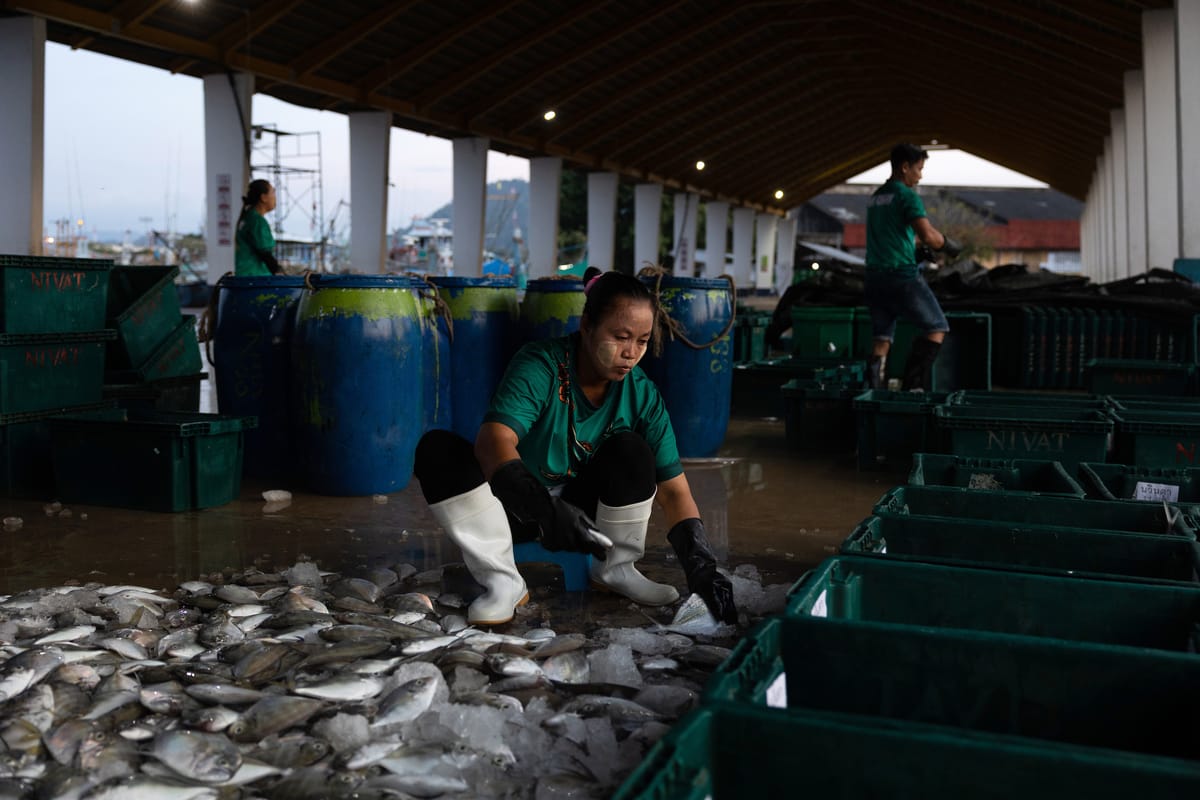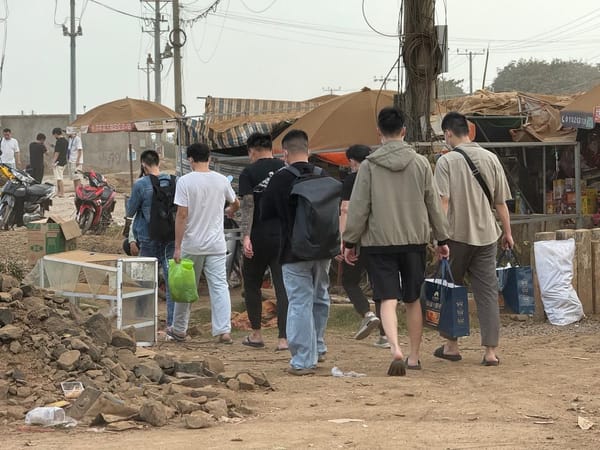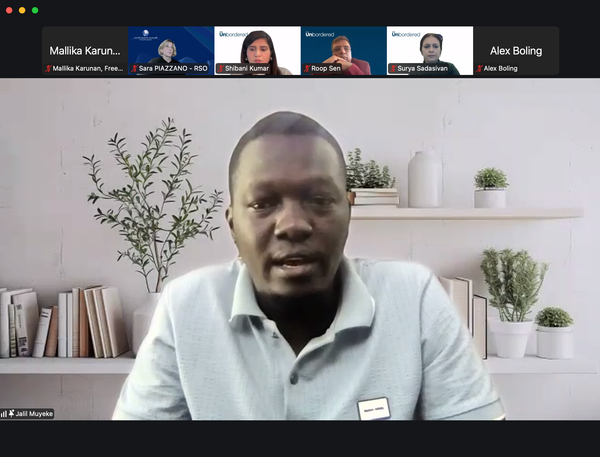CSOs release a joint statement on the urgent need for anti-trafficking funding
Civil society calls on funders to safeguard the future of anti-trafficking work, hundreds of people are rescued from scamming compounds in Myanmar, and migrant workers from climate-vulnerable areas of Bangladesh face high forced labour risks.

Freedom Collaborative, Freedom United, Global Learning Community and La Strada International announce the release of a joint statement calling for funders to step up their support for civil society anti-trafficking groups and their critical work, as the U.S shifts its funding position and freezes much of its foreign aid.
The U.S. has long been a source of funding for anti-trafficking efforts, particularly in regions where national funding is scarce, restrictive legislation hinders access to alternative sources, and funding competition remains high. Without urgent intervention from other governments, donors, and international organizations, these funding gaps threaten the stability of critical anti-trafficking monitoring and policy engagement, as well as related awareness and support programs for trafficked people and vulnerable groups.
As funding landscapes evolve, it is essential to build strong, independent, and adequately resourced civil society to continue its critical grassroots and monitoring work. Without engaged and supported CSOs, not only are frontline services impacted, but many anti-trafficking and rights protection policy frameworks risk becoming ineffective. These frameworks, developed over past decades, are designed to ensure that response efforts do no harm, remain sustainable, and drive long-term systemic change. In turn, this creates greater resilience and stability within communities, reducing vulnerability to human trafficking, exploitation, and organized crime.
In particular, we are calling for funders to help create a stable and predictable funding environment that allows frontline groups to plan for the long-term, build capacity, and develop holistic interventions. In many countries, no official government body fully addresses all aspects of human trafficking, and national budgets lack an adequate anti-trafficking response, leaving civil society to fill critical gaps in victim identification, support, and advocacy.
Despite their critical role, many anti-trafficking CSOs struggle to access national and foreign funding, including EU funding, due to a lack of specialized funding streams, bureaucratic and complex application processes, competition with better-resourced international organizations and commercial consultancy businesses, restrictive foreign agent laws, and political barriers which limit funding options.
Furthermore, over-reliance on any single funding source can allow external influences to shape anti-trafficking narratives and strategies, undermining long-term impact. Without a survivor-centered, independent, and human rights-based approach, responses risk being dictated by shifting political priorities or short-term donor trends, ultimately failing those in need.
Governments, donors, and international organizations must recognize civil society as a key anti-trafficking stakeholder – understanding that anti-trafficking policy processes rely on civil society’s participation is crucial because, without CSO engagement, many national and international frameworks will struggle to function effectively. Civil society is also an essential security partner – human trafficking and other severe forms of exploitation are not just human rights issues, they are also global security and economic challenges. Trafficking fuels organized crime, weakens labour markets, and deepens social instability, while effective anti-trafficking efforts strengthen governance, disrupt criminal networks, and reduce vulnerability in at-risk communities.
We are calling for funders to take the following urgent actions:
• Bridge the funding gap with emergency grants Now is the time for donors, philanthropic foundations, and international organizations to step up with rapid-response funding to keep services running, protect frontline staff, and ensure victims and vulnerable groups continue receiving essential support.
• Unfreeze and reallocate existing funds Governments and multilateral agencies can play a critical role by expediting the release of committed funds and redirecting unspent resources to sustain anti-trafficking efforts through this crisis.
• Increase direct support to local organizations Grassroots and survivor-led organizations are at the heart of the response but are often the first to be impacted by funding cuts. Flexible, direct, and trust-based funding for these groups ensures that vital services continue uninterrupted.
• Invest in networks that strengthen the sector In times of crisis, fragmentation is the enemy of effectiveness. Funders must support coalitions and partnerships that help CSOs stay connected, visible, and resilient, ensuring the sector remains strong and coordinated.
• Safeguard civil society’s ability to lead Now, more than ever, we must ensure CSOs have the resources, stability, and space to carry out their mission and continue their rights-based and independent work. Strengthening organizational capacity, amplifying civil society voices, and supporting long-term sustainability will help ensure that global anti-trafficking efforts continue and vital progress is not lost.
We invite civil society groups to sign our statement – please join us in calling for stakeholders to urgently step up and safeguard the future of anti-trafficking work.
Here’s a round-up of other noteworthy news and initiatives:
More than 250 foreign workers from 20 nationalities were rescued from cyber-scam centers in Myanmar’s Karen State last week and transferred to Thailand, where officials are assessing whether they were victims of human trafficking. The Democratic Karen Benevolent Army (DKBA), an armed group controlling the area, facilitated the handover, amid growing Thai and Chinese pressure to dismantle scam operations along the Thai-Myanmar border, with Thailand cutting power, fuel, and banking access.
A new report by Transparentem exposes severe labour abuses in Taiwan’s textile industry, including high recruitment fees, excessive overtime, and intimidation of migrant workers. While some buyers have committed to remediation efforts, others have failed to take action, highlighting the urgent need for industry-wide accountability and government reforms.
France is obstructing EU corporate accountability efforts, despite evidence linking major French companies like Decathlon to forced labour in China, according to Human Rights Watch. Instead of weakening due diligence laws, the French Government should support stronger measures to eliminate human rights abuses from global supply chains, it says.
A new IIED study has found that nearly all migrant workers from climate-vulnerable regions of Bangladesh have experienced at least one form of modern slavery, with 81 per cent of international migrants facing five or more types of exploitation. Researchers link rising numbers of climate-related disasters to increased migration, exposing workers to wage withholding, restricted movement, and debt bondage, particularly in Gulf countries.
During a recent visit, the OSCE Special Representative on Combating Trafficking in Human Beings praised Spain’s anti-trafficking efforts, including specialized law enforcement units and international cooperation, while urging the adoption of a comprehensive anti-trafficking law and a formal National Referral Mechanism (NRM). The visit also highlighted the need for stronger victim identification, particularly for child trafficking and labour exploitation, and proactive screening of migrants and asylum seekers for trafficking indicators.
A new report by STOP, sponsored by HER FUND, examines the vulnerabilities faced by migrant domestic workers from minority source countries in Hong Kong, who make up 2.56 per cent of the city’s 370,000 domestic workers. Alongside the report, a multilingual resource guide provides pre-departure and post-arrival advice, outlining workers’ rights, wellness tips, and support services available in Hong Kong.
The UN Special Rapporteur on Trafficking in Persons seeks input by 28 February 2025 for a report on migrant domestic workers and trafficking, focusing on labour rights, migration policies, and protection measures.




